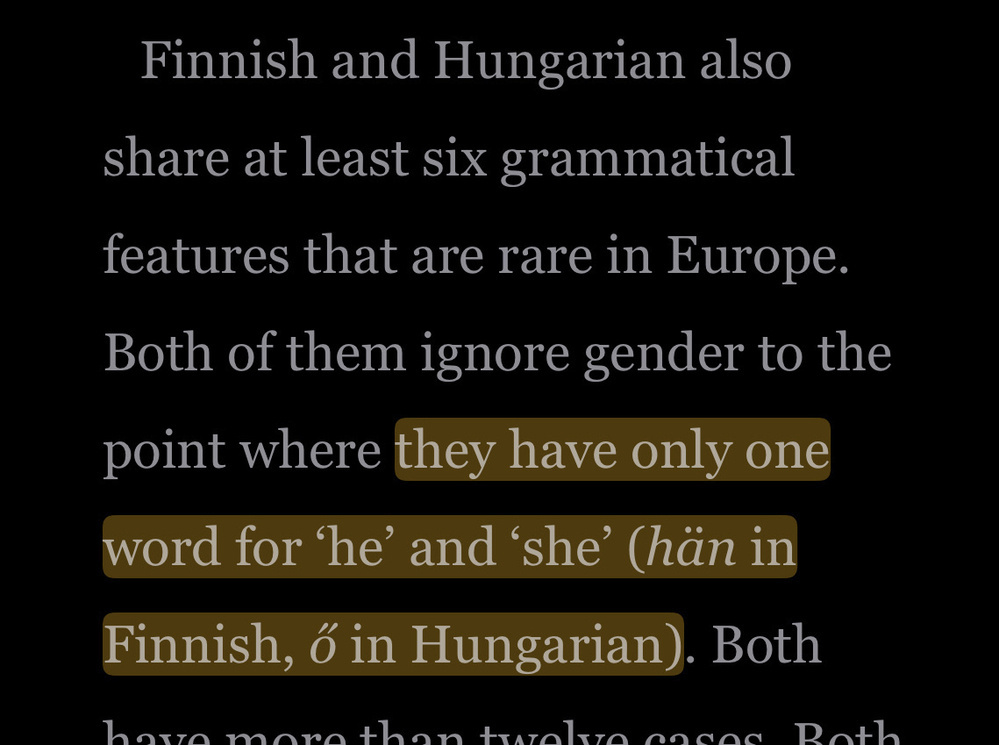I’m on Gaston Dorren’s Lingo rn for my night time reading and..huh!! 📚

@bapsi This is also the same in Kyrgyz though it isn't a European language :) This word (ал in Kyrgyz) also means 'it', and can refer to inanimate objects. I wonder if those he/she words in Finnish and Hungarian work the same way?
@annahavron @bapsi I believe 'hän' was added by Swedish christian missionaries to the Finnish language as they didn't like everything and everybody being referred to as 'se' or 'it'. Hän was for god (probably a him sneaked in there no doubt) but the fins just took it and used it to refer to everybody anyway. I learned this from @jayeless . Heres a link to her post.
@annahavron et al, Interesting! Wikipedia says that about half the world's languages use gendered nouns/pronouns, but they might be including animate-inanimate divisions, so maybe less than half?
@bapsi Hawaiian and Filipino both use gender neutral third person pronouns. I believe this might be common to Polynesian and Indonesian languages (which I think are the same language family). I met someone from Madagascar once, and he confused "he" and "she" in English the same way my Filipino father did. So I suspect whatever language they speak in Madagascar might have gender neutral pronouns, too.
@bapsi (The third person pronoun in Hawaiian is ia; in Filipino siya, which sounds a lot like "sha" when said out loud. So my Dad tended to call everyone "she" in English).
@MultoGhost That’s so interesting! Also inspires me to be curious about any particular part of speech that a language learner is struggling with. I’d imagine there’s often a first-language logic involved there, even if it’s word similarity like you mentioned for your dad.